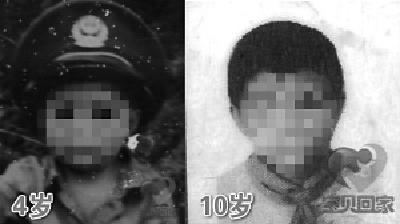Chinese tech giant Baidu used artificial intelligence to reconnect a man with his family 27 years after he was abducted, the company announced on April 12.
After starting to work last month with baobeihuijia.com, a charity group dedicated to connecting missing children and their families, Baidu used its facial recognition technology to comb through tens of thousands of photos of missing children.
Through analyzing the pictures of abducted children uploaded by the victims and their birth families, Baidu was able to identify potential matches by comparing selected facial features.
Fu Gui, a 33-year-old man living in southeast China, was abducted in 1990 and later transferred to Fujian Province, southeastern China. He uploaded a photo of himself at age 10 onto baobeihuijia.com in 2009 and his natural family submitted a photo of his son at age four in early 2017.
 |
|
Fu Gui was reunited with his family after he was abducted 27 years before thanks to the facial recognition program provided by Baidu. [Photo/Official WeChat account of Zhongguancun Science Park] |
Baidu's facial recognition program was able to draw up a shortlist of potential identities for the man from pictures uploaded to the site, and a DNA test later verified the correct match.
Baidu has about 200 million sample pictures that it uses to improve the sensitivity and accuracy of its facial recognition program, which is now over 99 percent accurate.
Baidu's founder and CEO Robin Li, who is also a national political advisor, proposed during the annual parliamentary sessions in March that AI systems such as facial recognition could be used to help find missing children and suggested that there should be a central database with missing children's information.
The company, which has been working on AI technology for six years, says its facial recognition program has applications at tourist areas, transport hubs and in the online financial sector. It's planning to roll out facial recognition tech at 100 Chinese tourist sites this year to replace entrance tickets.